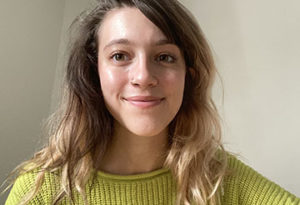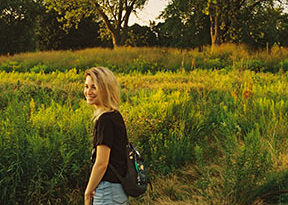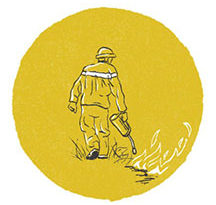 Knight Center director Eric Freedman is the lead editor of Communicating Endangered Species: Extinction, News, and Public Policy, a new multidisciplinary environmental communication book that takes a distinctive approach by connecting how media and culture depict and explain endangered species with how policymakers and natural resource managers can or do respond to these challenges in practical terms.
Knight Center director Eric Freedman is the lead editor of Communicating Endangered Species: Extinction, News, and Public Policy, a new multidisciplinary environmental communication book that takes a distinctive approach by connecting how media and culture depict and explain endangered species with how policymakers and natural resource managers can or do respond to these challenges in practical terms.
The coeditors are professors Sara Shipley Hiles of the University of Missouri and David B. Sachsman of the University of Tennessee at Chattanooga.
The book is available in hardcover and as an e-book.
It’s dedicated to environmental journalists around the world whose efforts continue to bring the extinction and biodiversity crisis to the attention of the public and policy makers and is published by Routledge as part of its Studies in Environmental Communication and Media series.

MSU undergraduates Logan Bry and Alexandra Swanson assisted with proofreading the manuscript. Former MSU master’s student Alexander Killion, now a Ph.D. candidate at the University of Michigan School for Environment and Sustainability, is the lead author of a chapter on the reintroduction of wolves to Isle Royale National Park.
Extinction isn’t new. However, the pace of extinction is accelerating globally. The International Union for Conservation of Nature classifies more than 26,000 species as threatened. The causes are many, including climate change, overdevelopment, human exploitation, disease, overhunting, habitat destruction, and predators. The willingness and the ability of ordinary people, governments, scientists, nongovernmental organizations, and businesses to slow this deeply disturbing acceleration are uncertain. Meanwhile, researchers around the world are laboring to better understand and communicate the possibility and implications of extinctions and to discover effective tools and public policies to combat the threats to species survival. This book presents a history of news coverage of endangered species around the world, examining how and why journalists and other communicators wrote what they did, how attitudes have changed, and why they have changed. It draws on the latest research by chapter authors who are a mix of social scientists, communication experts, and natural scientists. Each chapter includes a mass media and/or cultural aspect.
 This book will be essential reading for students, natural resource managers, government officials, environmental activists, and academics interested in conservation and biodiversity, environmental communication and journalism, and public policy.
This book will be essential reading for students, natural resource managers, government officials, environmental activists, and academics interested in conservation and biodiversity, environmental communication and journalism, and public policy.



 The articles cover research about Michigan’s
The articles cover research about Michigan’s  Orttenburger’s goal with the project was to explore long-form journalism and essayistic reporting. Her proposal was inspired in part by The Atlantic’s “
Orttenburger’s goal with the project was to explore long-form journalism and essayistic reporting. Her proposal was inspired in part by The Atlantic’s “ Knight Center director Eric Freedman is the lead editor of
Knight Center director Eric Freedman is the lead editor of 
 This book will be essential reading for students, natural resource managers, government officials, environmental activists, and academics interested in conservation and biodiversity, environmental communication and journalism, and public policy.
This book will be essential reading for students, natural resource managers, government officials, environmental activists, and academics interested in conservation and biodiversity, environmental communication and journalism, and public policy.